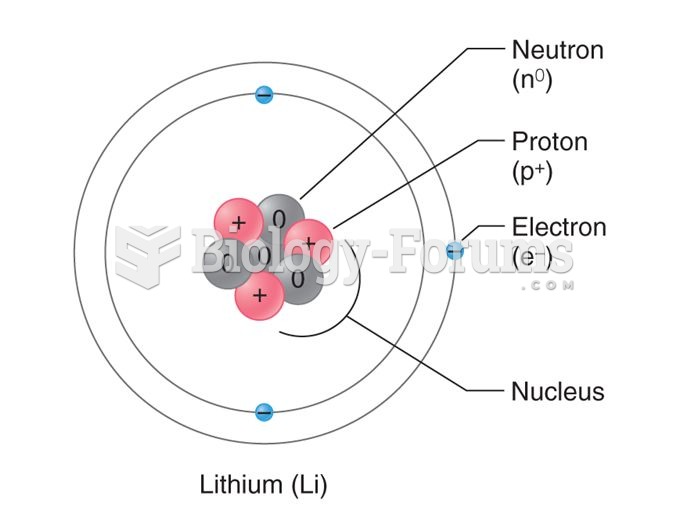|
|
|
GI conditions that will keep you out of the U.S. armed services include ulcers, varices, fistulas, esophagitis, gastritis, congenital abnormalities, inflammatory bowel disease, enteritis, colitis, proctitis, duodenal diverticula, malabsorption syndromes, hepatitis, cirrhosis, cysts, abscesses, pancreatitis, polyps, certain hemorrhoids, splenomegaly, hernias, recent abdominal surgery, GI bypass or stomach stapling, and artificial GI openings.
Cytomegalovirus affects nearly the same amount of newborns every year as Down syndrome.
In most climates, 8 to 10 glasses of water per day is recommended for adults. The best indicator for adequate fluid intake is frequent, clear urination.
In Eastern Europe and Russia, interferon is administered intranasally in varied doses for the common cold and influenza. It is claimed that this treatment can lower the risk of infection by as much as 60–70%.
According to the CDC, approximately 31.7% of the U.S. population has high low-density lipoprotein (LDL) or "bad cholesterol" levels.
 Adjust the water coming from the faucet so that the temperature is comfortable. Water too hot can ...
Adjust the water coming from the faucet so that the temperature is comfortable. Water too hot can ...
 Effleurage to transition to forearm-distal to proximal. Apply effleurage with moderate pressure to ...
Effleurage to transition to forearm-distal to proximal. Apply effleurage with moderate pressure to ...





